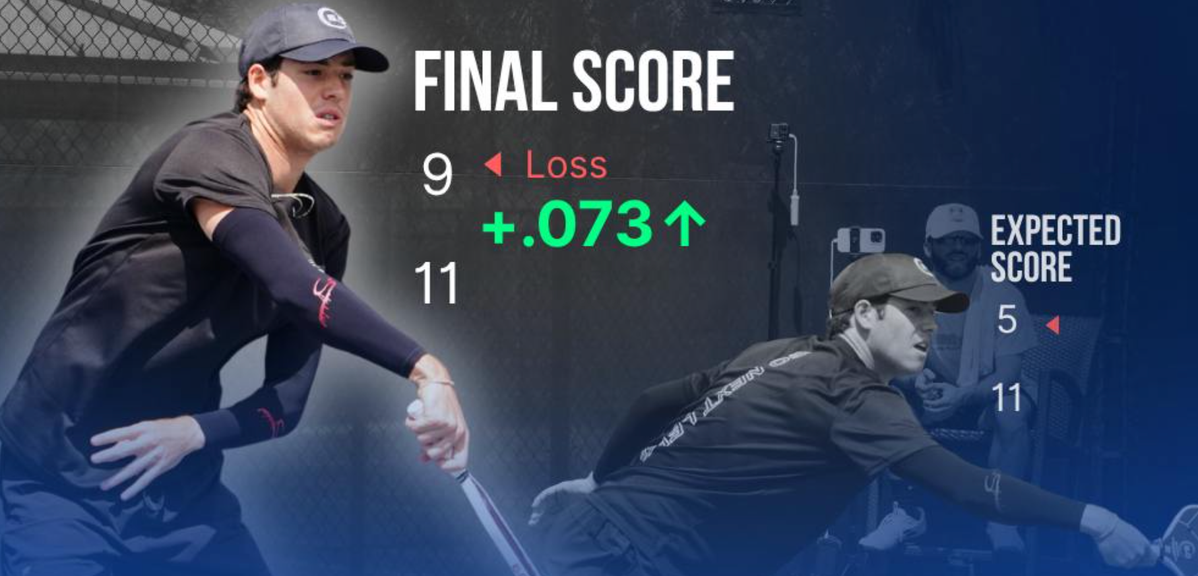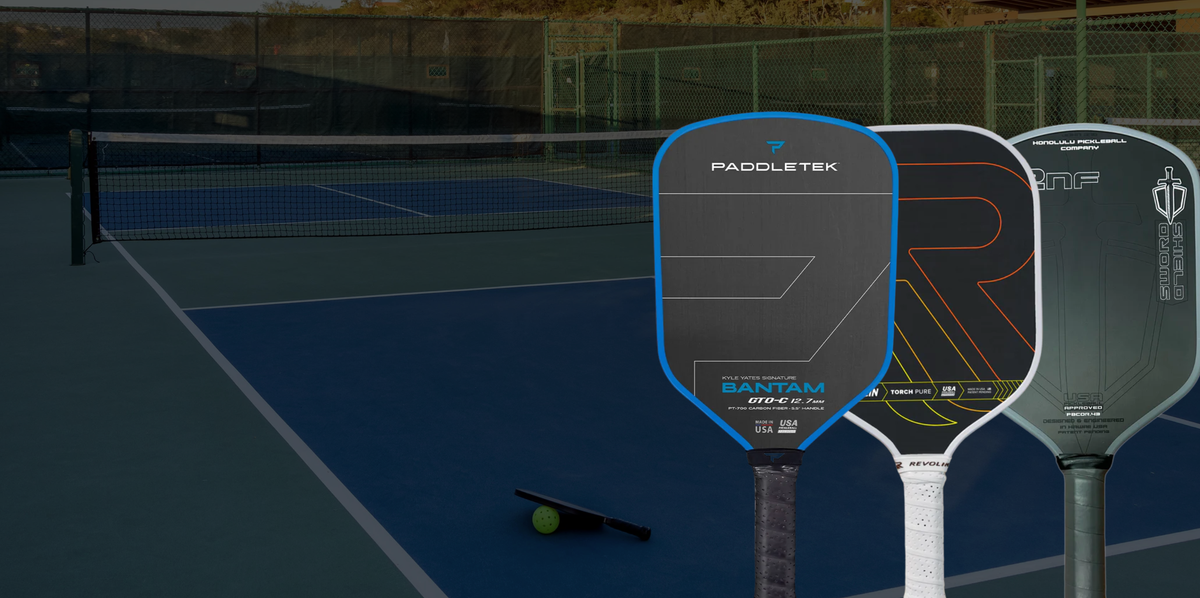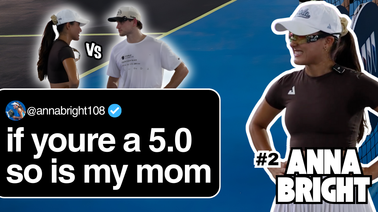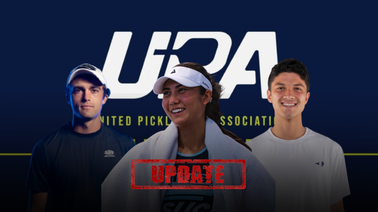
DUPR's new algorithm update rewards performance based on predictions – not just final game results. The reactions online are mixed.
The stakes for your DUPR games just went up.
DUPR dropped a surprise algorithm update yesterday. In a nutshell, starting now: “Your rating will move based on how you’re actually performing—not whether you win or lose.”
The update is an effort to rate players based on how they perform relative to expectations. This means, the ball is now in your court, whether you’re the favorite or the underdog.
According to DUPR:
"If you score more than expected, your DUPR rating will go up - even if you lose. If you score less, it will go down - even if you win."
The wait is over: Starting today, your rating moves based on performance, not just wins or losses.
— DUPR (@DUPRpb) July 8, 2025
Every match now has an expected score. Beat it, and your rating reflects it. Underdogs, favorites, everyone has a shot to climb
Read more here -> https://t.co/qsOhFrFraY pic.twitter.com/FMJFinUJ8Y
Why they did it
DUPR CEO Tito Machado took to LinkedIn to explain the decision behind the move.
Yesterday, we did something most companies wouldn’t dare: we risked the status quo. We disrupted the peace, shook the market, and I’ll be honest—this wasn’t an easy call. As CEO, it was risky. For me, for the team, for the company.
He said the update had instant ripple effects across the sport, a response he said "proves how deeply this brand is woven into the fabric of pickleball."
Thousands of comments. People defending us like we’re their home team. Others not thrilled—but still engaged. Thousands of shares. People posting on their stories, forums lighting up, debates everywhere.
How it works
- DUPR matches now have an expected, or predicted, score based on an algorithm analyzing the ratings of each player.
- Win or lose, if you score more than expected, your DUPR rating will go up. Score less and your rating goes down.
- Matches are weighted based on type, with facility or tournament play counting more than self-posted games.
- As always, the more matches you play and record, the more accurate your rating will become.
So, hypothetically, let's say you and your partner have an average DUPR rating of 5.25 and are playing a team with an average rating of 4.25.
The new algorithm is going to assess the disparity and predict your team to win by a pre-determined margin – for example, 11-4.
If you don't play that well, or the other team overperforms and puts up a good fight, and the score instead is 11-8, you and your partner could see a minor DUPR drop, even though you won the game.
And the same goes for the other team. Their rating could go up incrementally, despite the loss.

The reactions
Not surprisingly, the masses online have some thoughts on all this.
Of course, many rec league players are super protective of their DUPR rating, treating it with the same reverence as they would a favorable credit rating or LSAT score.
But this stuff matters – your DUPR rating is a single number that represents years, and countless hours, of court time and hard work. It's how you're judged recreationally, but also for tournaments or more serious events.
When it goes up or down, you want to feel like it's fair and predictable. We get that.
Why people like it
The DUPR algorithm is meant to measure performance, not hand out trophies. Wins and losses determine who takes home medals, but ratings should reflect your overall level of play, and that includes how you win.
Factoring in point differential isn’t punitive, it’s analytical. If you’re consistently letting lower-rated opponents stay close, that’s not a fluke, it’s a signal that your current rating may not reflect your actual level.
This update also emphasizes what any solid rating system should: consistency over time. One shaky win or unexpected loss won’t tank your DUPR. But if you regularly underperform against players you’re “supposed” to beat, the math will catch up. And that’s a good thing.
With more games and more data, the algorithm becomes more accurate, not just for you, but for everyone. It’s not about protecting egos. It’s about building a system that rewards real skill, not just good days.
Why people don't
The majority of the criticism seems to boil down to a few key themes.
First, there are those who think the rating system was just fine as it was. Nobody asked for this, so why change anything now?
Then there's the indignity of being penalized for winning a game. In other professional sports, point spreads matter, but ultimately it comes down to wins and losses. And a win is a win. How you got there shouldn't matter as much as the final score.
Finally, there's growing concern that weighting the algorithm toward "predicted" or "expected" outcomes will fundamentally change the complexion of DUPR matches going forward – why, for example, would a good team risk playing against a weaker team when even a win could negatively impact their rating?
It's hard enough playing against better players as it is; will this make that nearly impossible going forward?
For more reactions, check out the Reddit thread.

Love Pickleball? Join 100k+ readers for free weekly tips, news & gear deals.
Subscribe to The DinkGet 15% off pickleball gear at Midwest Racquet Sports










